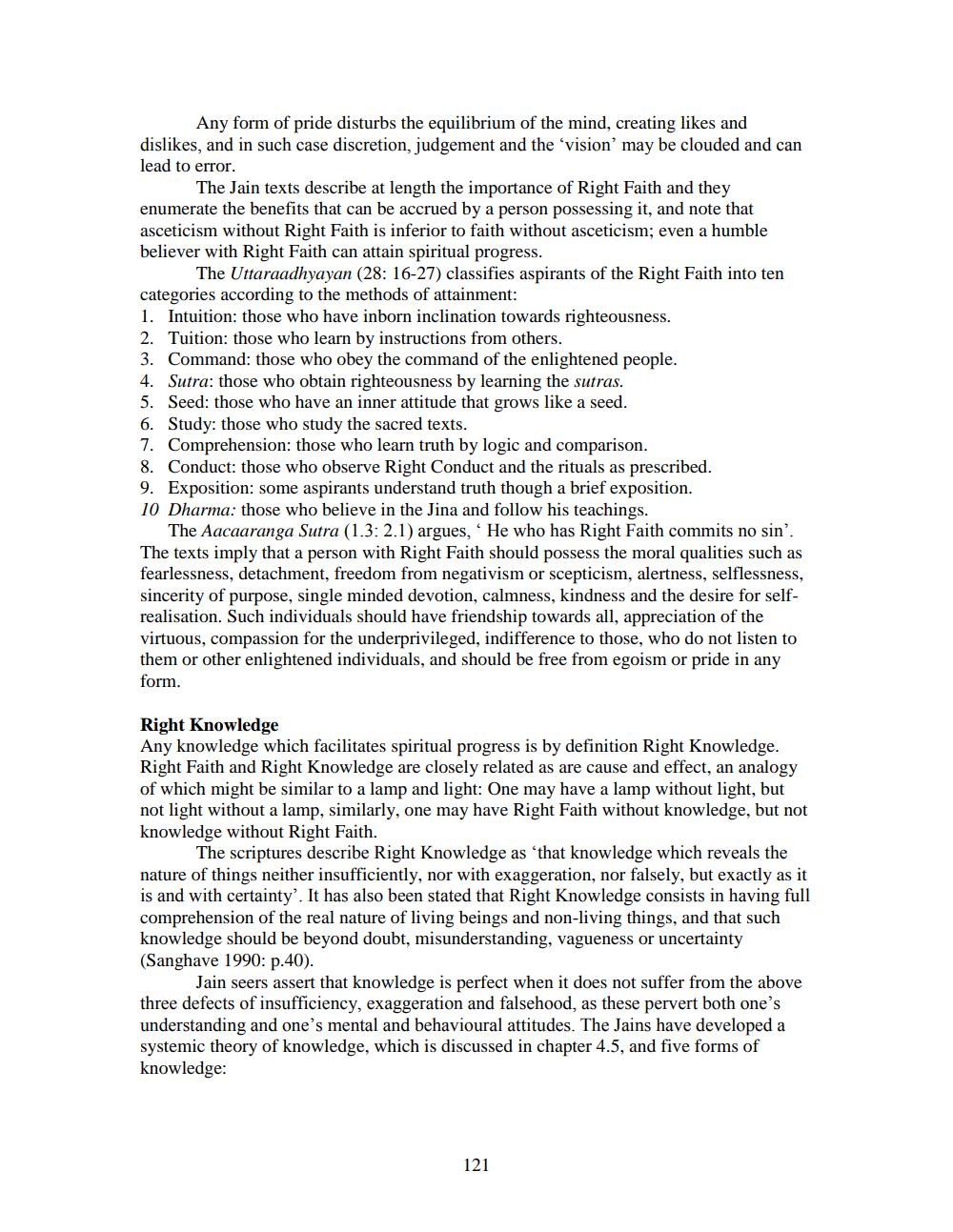________________
Any form of pride disturbs the equilibrium of the mind, creating likes and dislikes, and in such case discretion, judgement and the 'vision' may be clouded and can lead to error.
The Jain texts describe at length the importance of Right Faith and they enumerate the benefits that can be accrued by a person possessing it, and note that asceticism without Right Faith is inferior to faith without asceticism; even a humble believer with Right Faith can attain spiritual progress.
The Uttaraadhyayan (28: 16-27) classifies aspirants of the Right Faith into ten categories according to the methods of attainment: 1. Intuition: those who have inborn inclination towards righteousness. 2. Tuition: those who learn by instructions from others. 3. Command: those who obey the command of the enlightened people. 4. Sutra: those who obtain righteousness by learning the sutras. 5. Seed: those who have an inner attitude that grows like a seed. 6. Study: those who study the sacred texts. 7. Comprehension: those who learn truth by logic and comparison. 8. Conduct: those who observe Right Conduct and the rituals as prescribed. 9. Exposition: some aspirants understand truth though a brief exposition. 10 Dharma: those who believe in the Jina and follow his teachings.
The Aacaaranga Sutra (1.3: 2.1) argues, 'He who has Right Faith commits no sin'. The texts imply that a person with Right Faith should possess the moral qualities such as fearlessness, detachment, freedom from negativism or scepticism, alertness, selflessness, sincerity of purpose, single minded devotion, calmness, kindness and the desire for selfrealisation. Such individuals should have friendship towards all, appreciation of the virtuous, compassion for the underprivileged, indifference to those, who do not listen to them or other enlightened individuals, and should be free from egoism or pride in any form.
Right Knowledge Any knowledge which facilitates spiritual progress is by definition Right Knowledge. Right Faith and Right Knowledge are closely related as are cause and effect, an analogy of which might be similar to a lamp and light: One may have a lamp without light, but not light without a lamp, similarly, one may have Right Faith without knowledge, but not knowledge without Right Faith.
The scriptures describe Right Knowledge as 'that knowledge which reveals the nature of things neither insufficiently, nor with exaggeration, nor falsely, but exactly as it is and with certainty. It has also been stated that Right Knowledge consists in having full comprehension of the real nature of living beings and non-living things, and that such knowledge should be beyond doubt, misunderstanding, vagueness or uncertainty (Sanghave 1990:p.40).
Jain seers assert that knowledge is perfect when it does not suffer from the above three defects of insufficiency, exaggeration and falsehood, as these pervert both one's understanding and one's mental and behavioural attitudes. The Jains have developed a systemic theory of knowledge, which is discussed in chapter 4.5, and five forms of knowledge:
121




